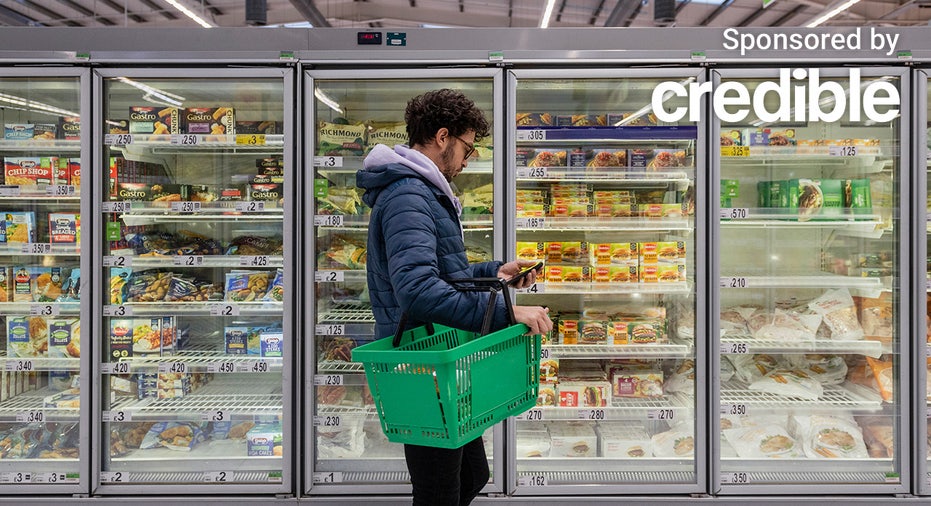Inflation, supply chain issues affecting Americans' spending habits: What to do to help
Consumers delay their purchases amid supply shortages, report finds

Americans are more conscious about prices as inflation continues to rise, according to a Morning Consult report. (iStock)
American consumers are growing increasingly price-conscious as inflation rises and are cutting back their spending in certain areas to meet their monthly expenses, according to a new report from Morning Consult.
The company's U.S. Supply Chains and Inflation report stated that consumers started to become more price-sensitive this spring, as inflation levels remained high. In addition, it noted consumers' struggles to purchase goods during this time, citing the war in Ukraine and lockdowns in China due to the COVID-19 pandemic.
"As inflation concerns weigh on consumer purchasing behavior, it is critical to understand the relationship between supply and price dynamics and their implications for consumer spending and overall growth," the report stated. "Even if monetary policy measures to tame inflation are successful, already high prices are likely to remain elevated for some time. Consumers’ response to inflation is therefore likely to play a major role in shaping the outlook for the U.S. economy."
Groceries appear to be the most impacted by shortages, according to the report, with about six in 10 adults who shopped for food reporting difficulty in finding certain items in April. The unrest in Ukraine exacerbated supply chain disruptions for agricultural products such as wheat, oils and fertilizers.
If surging inflation has led you to accrue high-interest debt, you could consider a personal to help you pay it down. Visit Credible to find your personalized interest rate on a personal loan with no impact to your credit score.
INFLATION EASES FOR FIRST TIME IN MONTHS, BUT REMAINS NEAR 40-YEAR HIGH
Supply shortages causing consumers to halt nonessential purchases
For most goods, Morning Consult reported that supply improved slightly from March to April, meaning less borrowers opted out of purchases when items were unavailable. But essential items were much less likely to take a hit even if they were out of stock, since consumers were reported to have searched until the item was found.
"Essentials like groceries are typically tracked down regardless of search difficulty, whereas purchases of some services or discretionary items are more easily deferred or abandoned," the report stated.
The delivery of goods was also affected in April, Morning Consult noted, and home-related items were impacted the most. In fact, consumers reported having higher purchase difficulty from March to April when it came to things like furniture, home-improvement supplies and appliances. Though more common items like groceries and paper products were harder to find during that time, they were still purchased.
A previous Morning Consult report also found that in April, major purchases like cars, homes or furniture fell through. When it came to housing, 72% of consumers chose not to make a purchase, 59% for furniture and 71% for a new vehicle.
Taking out a personal loan could be helpful if inflation uncertainty and rising prices have taken a toll on your finances. Contact Credible to speak to a personal loan expert and get your questions answered.
HOUSEHOLD DEBT SURGES TO MORE THAN $15 TRILLION IN Q1, ACCORDING TO NY FED
Consumers are delaying their purchases as prices rise
The annual inflation rate eased in April for the first time in months, but remains near a 40-year high. The Consumer Price Index — a measure of inflation — grew by 8.3% annually last month and remained near its 40-year high, according to the Bureau of Labor Statistics.
The Federal Reserve is currently raising the federal funds rate in order to combat inflation, with several interest rate hikes expected this year and next. The central bank raised rates by 25 basis points at its March meeting and by 50 basis points in May as the cost of living continues to rise.
"Not only are consumers responding to high prices by delaying or opting out of purchases, but a growing share are increasingly substituting cheaper alternatives for products and services that they originally sought to purchase when faced with higher-than-expected prices," Morning Consult stated.
Many adults have also reported driving less, as gas prices continue to surge. Although fewer drivers reported restricting their driving in April compared to March, those that did get behind the wheel less said overwhelmingly that it was due to rising gas prices. Though 35% of Americans said they drove less in April compared to 39% in March, an overwhelming majority (82%) said gas prices were the cause. In March, just over half (62%) said that was the reason.
If you are looking for ways to cut expenses amid rising costs of gas, groceries and more, you could consider taking out a personal loan to pay down any existing debt you may have. Visit Credible to compare multiple lenders at once and choose the one with the best interest rate for you.
Have a finance-related question, but don't know who to ask? Email The Credible Money Expert at moneyexpert@credible.com and your question might be answered by Credible in our Money Expert column.




















